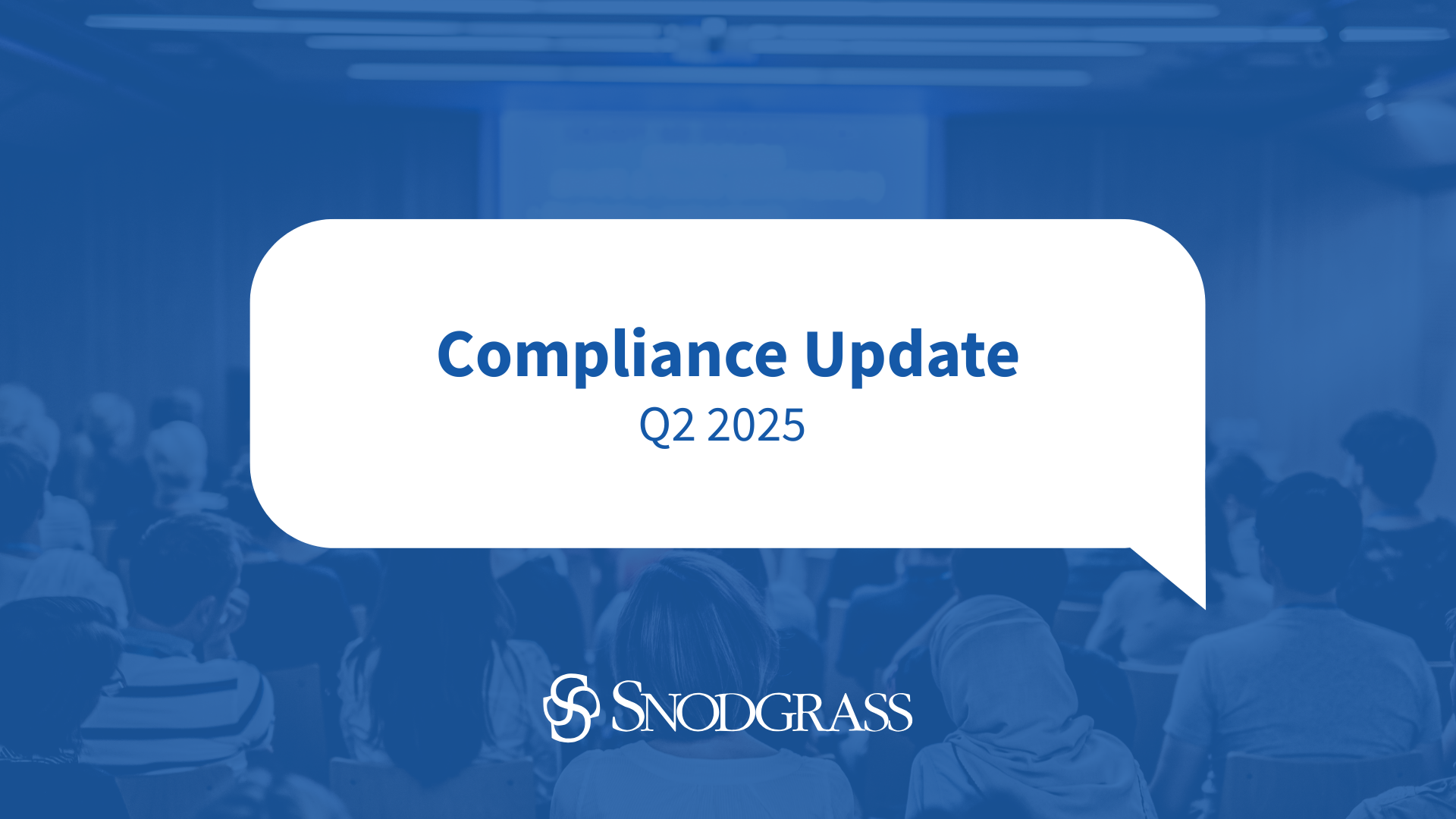Federal Reserve Board (FRB) Releases Discussion Paper That Examines Pros and Cons of a Potential United States (US) Central Bank Digital Currency (CBDC)
The FRB is asking for public comment regarding a potential US CBDC, including whether and how a CBDC could improve the safe and effective domestic payments system. While a CBDC could provide a safe, digital payment option for households and businesses as the payments system continues to evolve, and may result in faster payment options between countries, there may also be challenges. They include how to ensure a CBDC would preserve monetary and financial stability as well as complement existing means of payment.
https://www.federalreserve.gov/newsevents/pressreleases/other20220120a.htm
Federal Financial Institutions Examination Council (FFIEC) Issues Statement of Principles on Examination Information Requests
The members of the FFIEC have completed the final phase of the Examination Modernization Project and developed principles for examination information requests and a common authentication mechanism for external access to the supervision systems. Financial institutions can expect the following during an upcoming examination:
- Risk-focused and relevant information requests
- Sufficient time to produce new or additionally requested information
- Avoidance of duplicative and/or redundant requests
- A designated regulatory examination point of contact at the bank, to avoid placing burden on other institution staff
- All information and supplemental requests being clearly articulated in writing
https://www.ffiec.gov/press/pr012122.htm
Federal Deposit Insurance Corporation (FDIC) Issues Final Rulemaking on Simplification of Deposit Insurance Rules for Trust and Mortgage Servicing Accounts
The FDIC published a final rule to amend the deposit insurance regulations for trust and mortgage servicing accounts, to make the rules easier to understand, facilitate more timely insurance determinations in the event of a bank failure, and enhance consistency of insurance coverage. The final rule will take effect on April 1, 2024. Trust deposit accounts will be insured up to $250,000 per beneficiary, not to exceed five beneficiaries. Mortgage servicers’ advances of principal and interest funds on behalf of mortgagors in a mortgage servicing account will be insured up to $250,000 per mortgagor.
https://www.fdic.gov/news/financial-institution-letters/2022/fil22007.html
Consumer Financial Protection Bureau (CFPB) Launches Initiative to Save Americans Billions in Junk Fees
The CFPB is seeking public comment regarding consumer experiences with fees associated with their bank, credit union, prepaid or credit card account, mortgage, loan, or payment transfers. The CFPB is interested in hearing comments regarding fees believed to be covered by the baseline price of a product of service, unexpected fees for a product or service, fees that seemed too high for the service, and fees where it was unclear why they were charged.
CFPB Launches New Way for the Public to Petition the Agency for Action
The CFPB now permits members of the public to submit petitions for rulemaking directly to the CFPB, which will be posted on public dockets for review and comment. This is an attempt to improve transparency and ensure that the public has an opportunity to petition the government.
Community Reinvestment Act (CRA): Frequently Asked Questions (FAQs) Regarding the Final Rule to Rescind the Office of the Comptroller of the Currency (OCC)’s June 2020 CRA Rule
The OCC issued responses to FAQs about the December 2021 final rule to rescind the June 2020 CRA rule. The bulletin applies to community banks subject to the CRA. Responses in the FAQs document are related to bank type, qualifying activities, transition period, examination administration, assessment areas, data reporting, and strategic plans.
https://www.occ.gov/news-issuances/bulletins/2022/bulletin-2022-4.html
CFPB Outlines Options to Prevent Algorithmic Bias in Home Valuations
The CFPB outlined options to ensure computer models used to help determine home valuations are accurate and fair and will be reviewed to determine their potential impact on small businesses. The CFPB’s options will strengthen oversight of automatic valuation models and are intended to protect against the manipulation of data, seek to avoid conflicts of interest, require random sample testing and reviews, and ensure a high level of confidence in the estimates produced.
FDIC Accepts Voluntary Self-Assessments of Diversity Policies and Practices
The FDIC is encouraging all FDIC-supervised institutions, particularly those with 100 or more employees, to submit voluntary self-assessments of their diversity policies and procedures. The assessment is not an examination requirement; results have no impact on an institution’s safety and soundness, consumer compliance, or CRA examination ratings. The diversity self-assessment for is fully automated and accessible online through the secure FDICconnect portal.
https://www.fdic.gov/news/financial-institution-letters/2022/fil22009.html
CFPB Moves to Thwart Illegal Auto Repossessions
The CFPB has seen a spike in unlawful vehicle repossessions and has issued a bulletin with observed conduct and enforcement actions, including the illegal seizure of cars, sloppy recordkeeping, unreliable balance statements, and ransom for personal property.
https://www.consumerfinance.gov/about-us/newsroom/cfpb-moves-to-thwart-illegal-auto-repossessions/
FinCEN Provides Financial Institutions with Red Flags on Potential Russian Sanctions Evasion Attempts
FinCEN is advising all financial institutions to be vigilant against potential efforts to evade the expansive sanctions and other US-imposed restrictions implemented in connection with the Russian Federation’s further invasion of Ukraine. The alert provides examples of red flags to assist in identifying suspected sanctions evasion activity and reminds institutions of their reporting obligations under the Bank Secrecy Act. SAR filings related to this alert should include a specific reference in SAR field 2, and the narrative should include the key term “FIN-2022-RUSSIASANCTIONS.”
Issuance of New Russia-Related Executive Order and Related General License 16; Publication of New and Amended FAQs
The President has signed the Executive Order Prohibiting Certain Imports and New Investments With Respect to Continued Russian Federation Efforts To Undermine the Sovereignty and Territorial Integrity of Ukraine. As a result, the Department of the Treasury\’s Office of Foreign Assets Control (OFAC) has issued Russia-related General License 16. OFAC has also published new and updated several existing FAQs.
https://home.treasury.gov/policy-issues/financial-sanctions/recent-actions/20220308
Financial Action Task Force (FATF) Identifies Jurisdictions with Anti-Money Laundering (AML) and Combating the Financing of Terrorism (CFT) and Counter-Proliferation (CFP) Deficiencies
FATF has issued public statements updating its list of jurisdictions with strategic AML/CFT/CPF deficiencies. US financial institutions should consider the FATF’s stance toward these jurisdictions when reviewing their obligations and risk-based policies, procedures, and practices.
Nacha Amends the Micro-Entries Rule in the Nacha Operating Rules
Nacha has implemented the Micro-Entries rule amendment to define Micro-Entries, standardize certain formatting elements of Micro-Entries, establish other Micro-Entry origination practices, and apply risk management requirements to the origination of Micro-Entries. The rule will be effective in two phases:
- Phase 1, effective September 16, 2022: “Micro-Entry” will be a defined term and type of payment within the Nacha Operating Rules, and Originators of Micro-Entries will be required to use the standard Entry Description and follow other origination practices
- Phase 2, effective March 17, 2023: Originators of Micro-Entries will be required to use commercially reasonable fraud detection practices, including the monitoring of forward and return Micro-Entry volumes
Micro-Entries are a generally accepted method for an ACH Originator to test the validity of a Receiver’s account. A credit Micro-Entry will be an amount of less than $1.00, and one or more debit Micro-Entries must not exceed the amount of the corresponding credit Micro-Entries. The rule will standardize formatting for Micro-Entries by requiring the use of “ACCTVERIFY” in the Company Entry Description field. Other origination requirements include simultaneous settlement of debit and credit Micro-Entries.
Originators that use Micro-Entries will have to adopt the new formatting convention and adhere to the required timing and waiting periods associated with Micro-Entries. Additionally, Originators that do not have commercially reasonable fraud protection for their Micro-Entry origination in place will have to begin monitoring their forward and return volumes. Originating Depository Financial Institutions will need to make sure that their Originators that use Micro-Entries are aware of the Rule and its requirements.
Receiving Depository Financial Institutions (RDFIs) should consider incorporating Micro-Entry activity into existing fraud detection, AML, and money mule detection processes. They should consider treating corresponding credit and debit Micro-Entries the same when making post/no post decisions, either posting or returning both. RDFIs that have not automated their return processing are encouraged to do so to minimize the impact that additional administrative returns may have on their operations.
https://www.nachaoperatingrulesonline.org/supplement-1-2022-1.4631933



